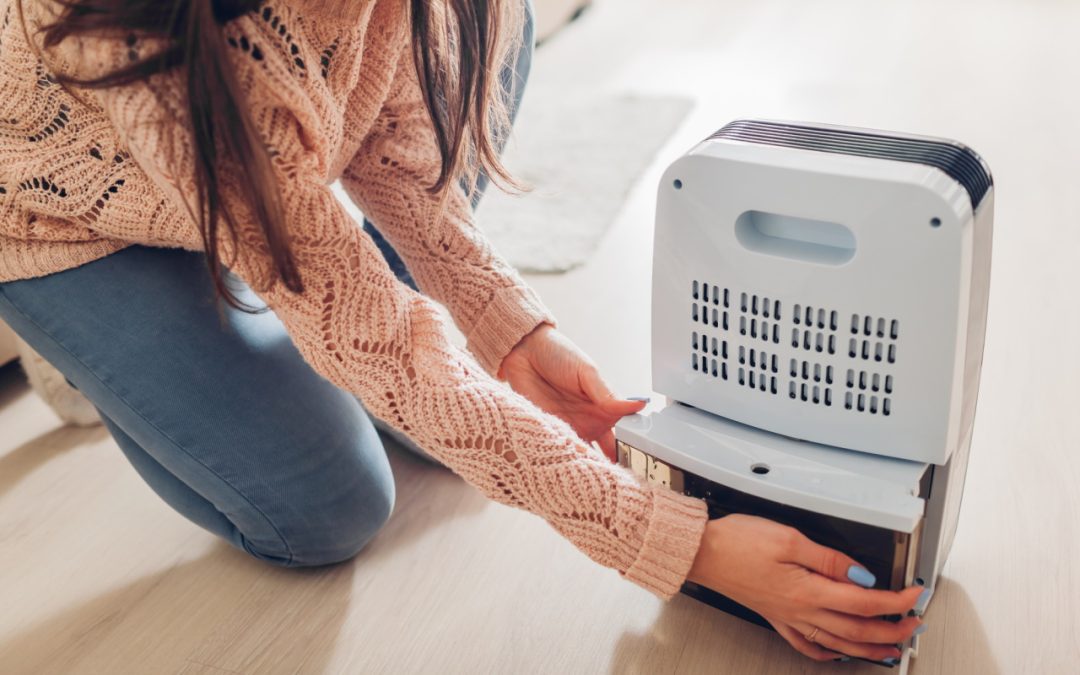As the leaves fall and the temperature drops, we naturally spend more time indoors, seeking warmth and comfort. However, as we seal our homes to keep the cold out, we might inadvertently trap pollutants, allergens, and other contaminants in our living spaces. Improving the air you breathe is essential for a healthier home and boosts your overall well-being during the fall and winter. Here are a few practical tips to improve indoor air quality.
Ways to Improve Indoor Air Quality
1. Boost Air Flow
Good circulation is necessary to maintain indoor air quality. When it’s cold outside, we close windows and doors. However, it’s essential to let in fresh air regularly. Open windows for a brief period each day, even if it’s just for a few minutes. You’ll remove indoor pollutants and introduce oxygen-rich outdoor air.
2. Invest in Indoor Plants to Improve Indoor Air Quality
Plants are beautiful, adding color and texture to your home and acting as natural air purifiers. Houseplants absorb carbon dioxide and release oxygen while filtering out harmful chemicals. Incorporate indoor plants like spider plants, snake plants, and peace lilies into your home. They require minimal maintenance and can improve air quality.
3. Regular HVAC Maintenance
Your heating, ventilation, and air conditioning (HVAC) system affects your home’s air quality. Schedule regular maintenance to ensure it operates efficiently and circulates clean air. Replace or clean the filters according to the manufacturer’s recommendations, usually every 30 – 90 days. Dirty filters trap allergens and dust, reducing the quality of the air indoors.
4. Use an Air Purifier
Air purifiers remove pollutants and allergens from the air. While they won’t replace the need for regular ventilation, they can be beneficial if you have allergies or live in an area with poor outdoor air quality.
5. Manage Humidity Levels to Improve Indoor Air Quality
Maintaining the right humidity level in your home is essential for air quality. High humidity contributes to mold and dust mites, while dry air irritates your respiratory system. Use a humidifier or dehumidifier to ensure comfortable and healthy humidity levels,
6. Improve Indoor Air Quality: Clean the House Regularly
Dust and allergens accumulate quickly, especially in the fall and winter when our homes are closed. Regular cleaning combats this issue. Vacuum the floors and carpets frequently using a vacuum cleaner equipped with a HEPA filter. Dust surfaces and wash your bedding regularly to remove dust mites and allergens.
7. Avoid Tobacco Use and Limit Chemical Cleaning Products
Tobacco smoke significantly reduces indoor air quality. If you or anyone in your household smokes, designate an area in your outdoor living space to minimize the impact on indoor air. Additionally, be cautious with chemical use. Cleaning products and air fresheners can release harmful VOCs. Opt for natural, non-toxic alternatives whenever possible.
Following these tips helps create a healthier and more comfortable indoor environment for the fall and winter. Improved air quality reduces the risk of allergies and respiratory issues while keeping your home safe and healthy. With a few small changes, you’ll reap the benefits of cleaner, fresher air throughout the season.
Clear and Confident Home Inspections offers inspection services to homebuyers and sellers in Fredericton, Saint John, and surrounding areas. Contact us to schedule an appointment.

